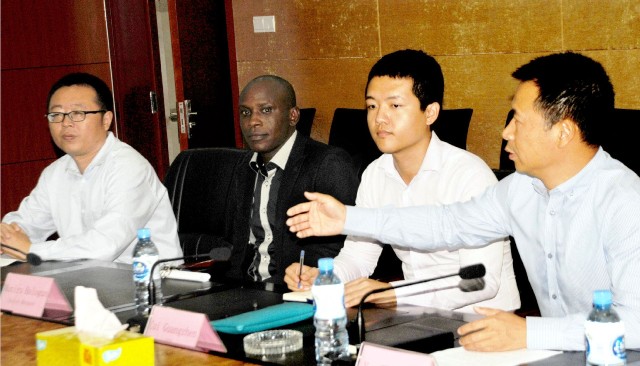Business
Economic Recovery: ‘Monetary Policy Offers Limited Tools’

Governor of Central Bank of Nigeria (CBN), Mr. Godwin Emefiele says monetary policy offers limited tools for dealing with the current economic challenges in the country.
Emefiele said this while delivering a keynote lecture at the 2017 Annual Conference of Nigerian Bar Association (NBA) in Lagos.
The lecture was titled “The Dilemma of Monetary Policy During a Recession: Potential Options for Nigeria”.
Emefiele identified the current challenges facing Nigeria as falling Gross Domestic Products (GDP) growth rate, rising inflation, persistently high interest rates, falling foreign exchange reserves and depreciating exchange rate.
He said the CBN could not tackle these challenges with the tool available to it with the objective of changing the outcomes for the better.
The governor pointed that CBN had always used monetary policy implementation at its disposal in controlling interest rates and money supply to moderate inflation and achieve economic growth.
Emefiele said these problems occurred simultaneously and needed to be dealt with over a short period of time.
According to him, the real dilemma the country is faced with is that there are significant trade-offs in outcomes of economic variables regardless of what specific monetary policy the nation implemented.
“For example, one would expect that given the bank’s core mandate to pursue low inflation, the central bank would implement policies geared towards that.
“In order to tackle high inflation, the correct monetary policy would be to tighten money supply either by increasing the Cash Reserve Requirement (CRR) of banks, mopping up money through increased Open Market Operations or raising the Liquidity Ratio of banks.
“While doing any or a combination of these would help moderate inflationary pressure, it could ensure that interest rates remain high and may even be inimical to restoring economic growth in the short term.
He, therefore, said that bank would need the support and cooperation of the NBA to build synergy towards the achievement of the various policy options enumerated.
According to him, the CBN is leading other stakeholders through the Financial System Strategy 2020 (FSS2020) in order to achieve stability in the financial system.
He said this would help to develop a robust, globally competitive and market friendly legal framework for Nigeria’s financial sector by the year 2020.
“FSS 2020 intends to apply the instrumentality of the law as a vehicle to fast-track the development of Nigeria’s financial system.
“As such, this is one area where the CBN would need the support of the NBA.”
Emefiele said that one of the major lessons learnt from the recent global financial crises was the need to develop adequate frameworks and appropriate tools for managing financial stability.
“In this regard, the Financial Services Regulation Coordinating Committee led by the CBN, is putting together a robust framework that will adequately promote stability of the Nigeria’s financial system.
The governor also said that it was imperative that the NBA should be ready and willing to partner with the CBN in areas like legislative advocacy.
He said this would ensure quick promulgation of robust legislations in support of chosen policy options and vigorous support for establishment of commercial courts to facilitate speedy resolution of commercial disputes.
Others, he said, were provision of constructive inputs for the development of robust financial sector legislative bills and other regulations and checkmating unbridled recourse to the use of interlocutory applications to frustrate legitimate expectations in commercial and financial disputes to contribute.
He urged every Nigerian to contribute his or her quota to national development.
“I am not unaware of the short-term pains we are all going through right now. But gold glitters after it has gone through enormous heat.
“Let us, therefore, use this opportunity to look inwards, diversify our economy, produce locally, and create jobs for our unemployed youths.
“Even when we disagree about the way forward, we should do so in good faith and never lose sight of what is important.
“We should remain resolutely committed to the course and be motivated by the achievability of our desire to strengthen our economic fundamentals.”
Transport
Automated Points Concession : FAAN Workers Gave 72hrs To Revise Decisions In PH

Transport
FAAN Announces Pick-Up Points for Go-Cashless Cards

Business
Fidelity Bank To Empower Women With Sustainable Entrepreneurship Skills, HAP2.0
-

 News4 days ago
News4 days agoAmend Constitution To Accommodate State Police, Tinubu Tells Senators
-

 Politics4 days ago
Politics4 days agoSenate Urges Tinubu To Sack CAC Boss
-
Business4 days ago
Crisis Response: EU-project Delivers New Vet. Clinic To Katsina Govt.
-
Business4 days ago
President Tinubu Approves Extension Ban On Raw Shea Nut Export
-

 News4 days ago
News4 days agoDisu Takes Over As New IGP …Declares Total War On Corruption, Impunity
-
Business4 days ago
President Tinubu Extends Raw Shea Nuts Export Ban To 2027
-
Business4 days ago
Fidelity Bank To Empower Women With Sustainable Entrepreneurship Skills, HAP2.0
-
Sports4 days ago
NDG: Rivers Coach Appeal To NDDC In Talent Discovery

